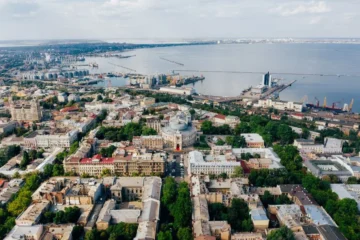For years, Georgia has been a magnet for foreign workers, freelancers, and entrepreneurs seeking a straightforward way to live and earn here. With visa-free entry for many nationalities and a welcoming business environment, it was often enough to simply arrive, set up shop, and start working.
Key Takeaways
Why Georgia Is Introducing a Mandatory Work Permit System in 2026
The government’s push for a formal work permit system comes down to three main goals: regulating the labor market, protecting worker rights, and ensuring economic oversight. By requiring permits, authorities can better track who’s working in the country, under what conditions, and whether they’re meeting legal standards. It’s also a step toward aligning with global labor practices and discouraging the grey areas of “tourist visa employment” that have quietly flourished in recent years.
Officials insist the move isn’t meant to push foreigners out but to create a more transparent, fair playing field for both locals and internationals. Still, if you’ve been enjoying Georgia’s previous “no-questions-asked” approach to work, you’ll need to adjust to a more formal process.
Who Will Need a Work Permit Under the New Rules
The new law casts a wide net. Most foreign nationals who intend to work or run a business in Georgia will need a permit, whether they’re a full-time employee, a freelancer juggling multiple projects, or a self-employed consultant.
Also Read: Can You Travel to Georgia Visa-Free with an Indian Passport in 2025?
Employers will be responsible for securing permits for their foreign staff, while freelancers and independent business owners must apply for their own. This applies whether you’re teaching English in Tbilisi, coding from a coworking space in Batumi, or managing a boutique winery in Kakheti.
Some people are exempt, but the list is short. Permanent residents, recognized refugees, asylum seekers, accredited journalists, diplomats, and holders of investment residence permits can continue working without extra paperwork. For everyone else, the days of blending work with a tourist or short-term residence status are coming to an end.
Application Process for the 2026 Work Permit
The exact paperwork requirements haven’t been fully published yet, but expect something in line with other countries’ processes. For employees, the employer will need to provide proof of the employment relationship, and supporting documents like your passport copy and qualifications. Self-employed applicants will likely need to prove their business activity or freelance contracts.

There will be an application fee amount still to be confirmed and a processing time that could range from a few weeks to a couple of months. The government has promised to roll out an online application portal to make things smoother, though it’s wise to anticipate some initial teething problems.
A transition period runs until January 1, 2027, so if you’re already working in Georgia, you’ll have time to apply without immediately risking penalties. That said, waiting until the last minute isn’t recommended, especially if the system sees a rush of applications late in 2026.
Possible Exceptions and Exemptions
Georgia’s government has already outlined a few key exemptions. These include people with permanent residency, recognized refugees, asylum seekers, diplomats, accredited journalists, and holders of investment residence permits.
Future regulations may clarify whether certain highly skilled workers, investors, or citizens of countries with special bilateral agreements will also be exempt. Another big question mark is remote workersespecially digital nomads who live in Georgia but work exclusively for foreign clients. If you fall into that category, keep an eye on official announcements, as you may end up either exempt or subject to a simplified application process.
Penalties for Working Without a Permit in Georgia
The government isn’t treating this as a “soft” rule. If you work without a permit when required, you could face fines starting at 2,000 GEL (around $700), with higher penalties for repeat offenses. Employers who knowingly hire foreigners without permits can also be fined, making it risky for both sides to ignore the law.
Also Read: Looking to Work in Belgium? These 81 Jobs Can Get You a Visa Faster in 2025
In more serious cases or repeated non-compliance, you could be looking at deportation. That might sound harsh, but from the government’s perspective, it’s about discouraging unauthorized work and making sure everyone plays by the same rules.
How Foreign Workers Can Prepare Before 2026
If you plan to keep working in Georgia after March 1, 2026, the best time to start preparing is now. Begin by gathering important documents like your passport, proof of qualifications, and contracts. If you’re self-employed, keep clean, clear records of your business activities, invoices, and client agreements.
Take time to understand Georgian labor laws and your rights as a foreign worker. If you’re employed, speak to your employer about their plans for securing your permit. If you work for yourself, follow official updates closely so you’re ready to apply as soon as the process opens.
The bottom line: Georgia’s move toward work permits represents a cultural and legal shift. It’s not the end of opportunity here, but it does mean the “show up and work” era is closing. With the right preparation, you can transition smoothly and legally into the new system.





